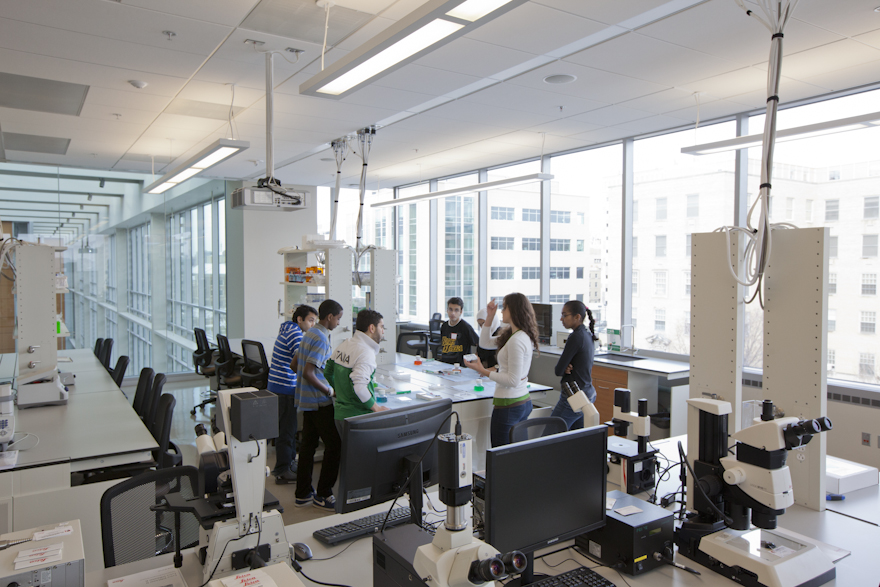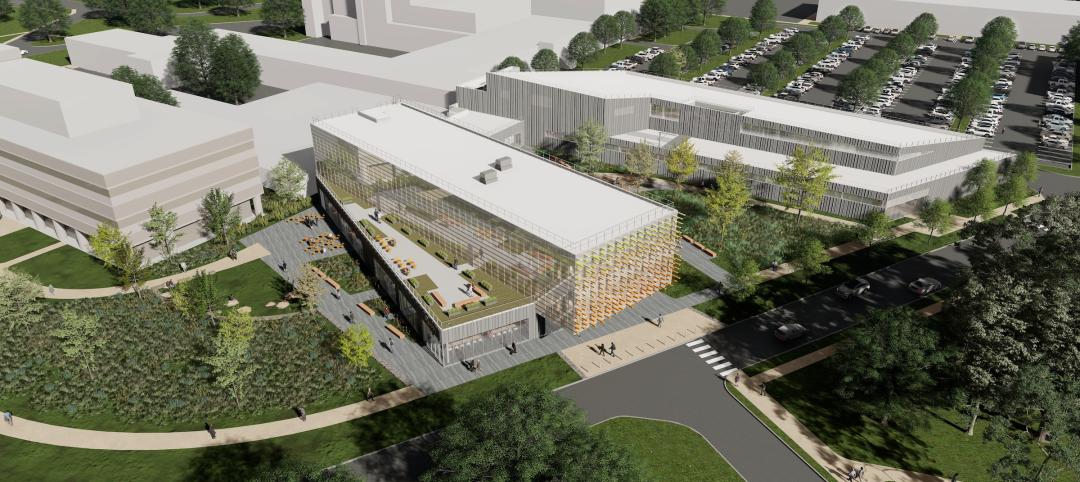After Moody’s and other credit ratings agencies tightened their standards a few years ago, universities had to become much more disciplined about their financing mechanisms.
“Internally, we are paying a great deal of attention to cash on hand relative to debt to maintain our good ratings,” says Gonzaga University EVP Marty Martin. “It’s a constant reference point.”
“The financing climate is different than it was 20 years ago,” notes UC Santa Barbara Campus Architect Marc Fisher, AIA. “The state is not funding construction at the same pace. We’re going to see more student-funded, donor-funded, and research-funded projects. We’ll see more creative funding in the future.”
One such creative funding option is the public-private partnership. The PPP strategy is most popular for student housing, mixed-use buildings, parking facilities, and retail—any project with a revenue stream.
The University of Texas at Dallas recently selected Balfour Beatty and Wynne/Jackson to develop a mixed-use project near the edge of the campus. To be called “Comet Town,” the project will be financed through a land lease, whereby the university will lease the land to the developer who will build, own, and operate the building for a specific period.
Apartments will be open to the public, but most residents are expected to be part of the UT community, says Dr. Calvin Jamison, VP of Administration.
The University of Wisconsin–Madison has employed third-party partnerships sparingly, but did so twice when a private developer needed more space to build on a couple of residential/retail properties adjacent to campus.
The state university also teamed up with the Morgridge Institute for Research a few years ago to build the Wisconsin Institutes for Discovery, a research lab that includes retail/restaurant space. Half of the lab space is privately owned.
In the wake of the recession, Cornell University instituted new guidelines for major capital projects. “One of the pillars of the new policy was no new debt,” says University Architect Gilbert Delgado, AIA. “Funding for all projects has to be either identified or on hand before a project goes forward.”
For Weill Cornell Medical College, a New York City institution since 1898, the university is exploring the construction of a major residential tower with a private developer. “Our goal is to make housing more affordable for students, faculty, and staff,” says Delgado.
To keep rents affordable, future residential projects in the city might include so-called micro apartments about half the size of a studio unit, supplemented with more generous common areas. Delgado says the university is also studying how to build more affordable housing in Ithaca—“maybe through PPP-type land-lease agreements,” he says.
More from BD+C's exclusive report, "How your firm can gain an edge on university projects."
Related Stories
Women in Design+Construction | May 28, 2024
Commerce Department launches Million Women in Construction Community Pledge
The U.S. Department of Commerce launched its Million Women in Construction Community Pledge this month to boost the ranks of women in construction companies. Federal investments are creating a construction boom that is increasing job opportunities for construction and trade workers.
Laboratories | May 24, 2024
The Department of Energy breaks ground on the Princeton Plasma Innovation Center
In Princeton, N.J., the U.S. Department of Energy’s Princeton Plasma Physics Laboratory (PPPL) has broken ground on the Princeton Plasma Innovation Center (PPIC), a state-of-the-art office and laboratory building. Designed and constructed by SmithGroup, the $109.7 million facility will provide space for research supporting PPPL’s expanded mission into microelectronics, quantum sensors and devices, and sustainability sciences.
MFPRO+ News | May 24, 2024
Austin, Texas, outlaws windowless bedrooms
Austin, Texas will no longer allow developers to build windowless bedrooms. For at least two decades, the city had permitted developers to build thousands of windowless bedrooms.
Resiliency | May 24, 2024
As temperatures underground rise, so do risks to commercial buildings
Heat created by underground structures is increasing the risk of damage to buildings, recent studies have found. Basements, train tunnels, sewers, and other underground systems are making the ground around them warmer, which causes soil, sand, clay and silt to shift, settle, contract, and expand.
Sports and Recreational Facilities | May 23, 2024
The Cincinnati Open will undergo a campus-wide renovation ahead of the expanded 2025 tournament
One of the longest-running tennis tournaments in the country, the Cincinnati Open will add a 2,000-seat stadium, new courts and player center, and more greenspace to create a park-like atmosphere.
Mass Timber | May 22, 2024
3 mass timber architecture innovations
As mass timber construction evolves from the first decade of projects, we're finding an increasing variety of mass timber solutions. Here are three primary examples.
MFPRO+ News | May 21, 2024
Massachusetts governor launches advocacy group to push for more housing
Massachusetts’ Gov. Maura Healey and Lt. Gov. Kim Driscoll have taken the unusual step of setting up a nonprofit to advocate for pro-housing efforts at the local level. One Commonwealth Inc., will work to provide political and financial support for local housing initiatives, a key pillar of the governor’s agenda.
Building Tech | May 21, 2024
In a world first, load-bearing concrete walls built with a 3D printer
A Germany-based construction engineering company says it has constructed the world’s first load-bearing concrete walls built with a 3D printer. Züblin built a new warehouse from a single 3D print for Strabag Baumaschinentechnik International in Stuttgart, Germany using a Putzmeister 3D printer.
MFPRO+ News | May 21, 2024
Baker Barrios Architects announces new leadership roles for multifamily, healthcare design
Baker Barrios Architects announced two new additions to its leadership: Chris Powers, RA, AIA, NCARB, EDAC, as Associate Principal and Director (Healthcare); and Mark Kluemper, AIA, NCARB, as Associate Principal and Technical Director (Multifamily).
MFPRO+ News | May 20, 2024
Florida condo market roiled by structural safety standards law
A Florida law enacted after the Surfside condo tower collapse is causing turmoil in the condominium market. The law, which requires buildings to meet certain structural safety standards, is forcing condo associations to assess hefty fees to make repairs on older properties. In some cases, the cost per unit runs into six figures.

















